Description
ABSTRACT
Rethinking Corporate Social Responsibility in Nigeria
Laura Ani*
Corporate Social Responsibility (CSR) has become an important strategic policy for corporations globally, yet definitional problems have militated against a lack of clarity in the theoretical underpinnings and its application. It is therefore argued that the application of CSR as a form of self-regulation based mainly on moral motivation and altruistic incentives should be expanded and made more heterogeneous. Consequently, the paper examines whether Nigerian corporations should expand the CSR narrative into an “all inclusive approach” through law and if so, how can this be implemented. This is based on the supposition that corporations also owe a fiduciary duty and broad obligations to societal groups other than their own shareholders. Given the absence of a universally accepted definition of CSR in corporate jurisprudence, the issue needs to be clarified and developed to ease its adoption and implementation. The paper concludes that there is a need to depart from the voluntary practice of CSR by institutionalising it in the form of legislation.
Keywords: Corporate Social Responsibility, Shareholders, Stakeholders.
INTRODUCTION
Different authors have different interpretations about what CSR is and the absence and clear and workable concept could mean that studies on CSR would be based on a fragile foundation of the topic. However, Frynas states that:1
The universal assumptions about the social and political conditions for the success of CSR initiatives are also unrealistic. Thus the same initiative may be appropriate in one country but not elsewhere; it may work in one sector but not in other sectors, it may be successful in one situation but not on other occasions.
With Frynas’ assertion in mind, the concept of “corporate social responsibility” (CSR) is an elusive concept without serving any functional and holistic purpose to effectively curb the excesses of multinationals and indigenous corporations in Nigeria.The failure of CSR to have made any meaningful impact especially in Nigeria is perhaps linked to a myopic understanding of its very eclectic nature as well as the future to metamorphose CSR from its long standing altruistic voluntary nature to a mandatory form of regulation. Accordingly, to Amaeshi et al, CSR in Nigeria is:
localised and socially embedded and aimed towards addressing the peculiarity of the socioeconomic development challenges of the country e.g. poverty alleviation, healthcare provision, infrastructure development, education amongst others and might not necessarily reflect the popular Western Standard expectation of CSR.2
The narrow construct is possibly why CSR in Nigeria has always been linked to socioeconomic development.
* LL.M (Lond), BL, Grad (ICSAN). Doctoral Candidate at the Obafemi Awolowo University, Ile Ife and Research Fellow, Nigerian Institute of Advanced Legal Studies.
- Jedrzej George Fraynas, Beyond Corporate Social Responsibility: Oil Multinationals and Social Challenges (Cambridge University Press 2009) 38.
- Kenneth M. Amaeshi, Bongo C. Adi, Chris Ogbechie and Olufemi O. Amao, ‘Corporate Social Responsibilty in Nigeria: Western Mimickry or Indigenous Influence?’ (2006) 24 Journal of Corporate Citizenship 83-99.

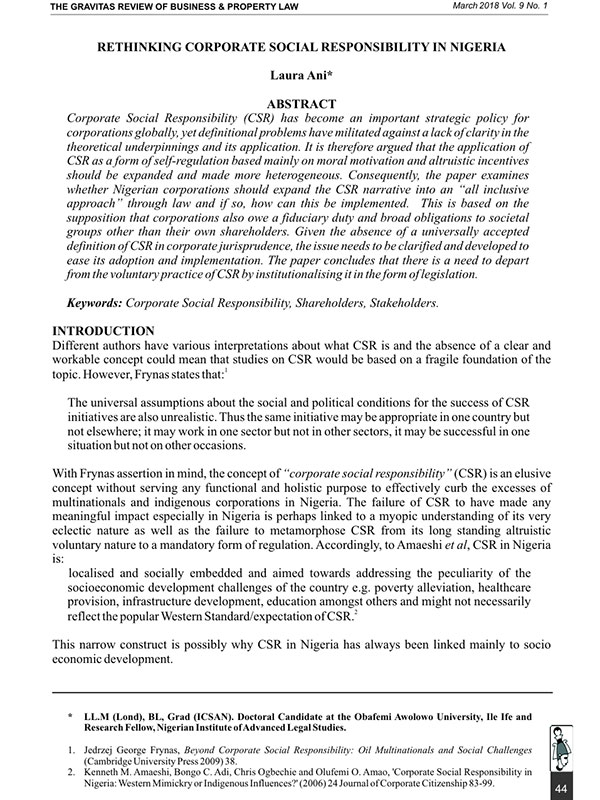
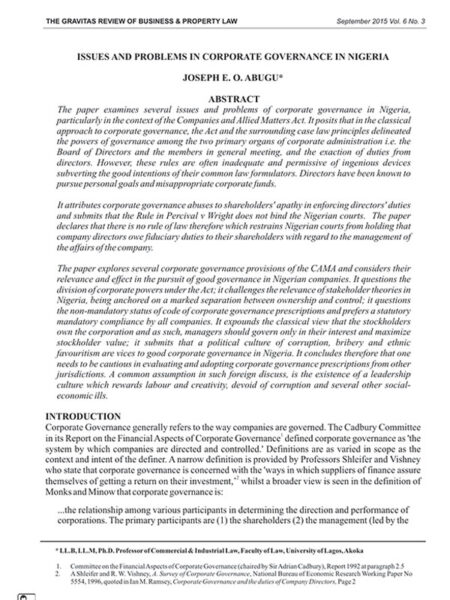
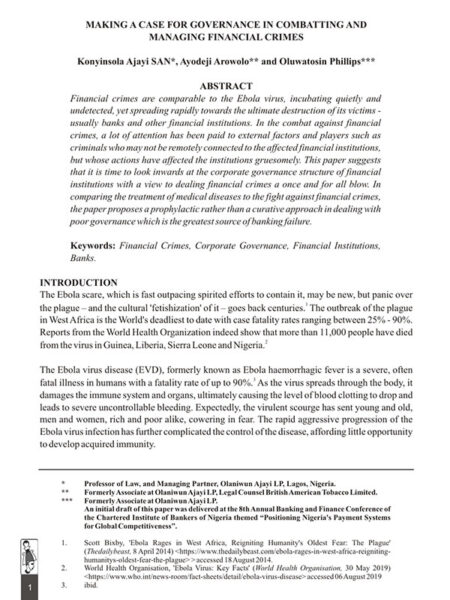
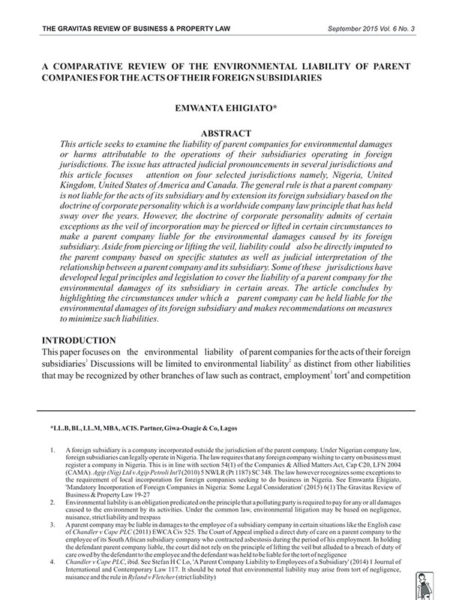
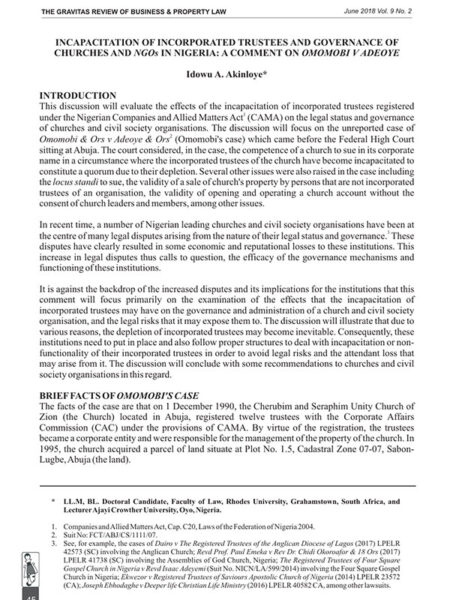


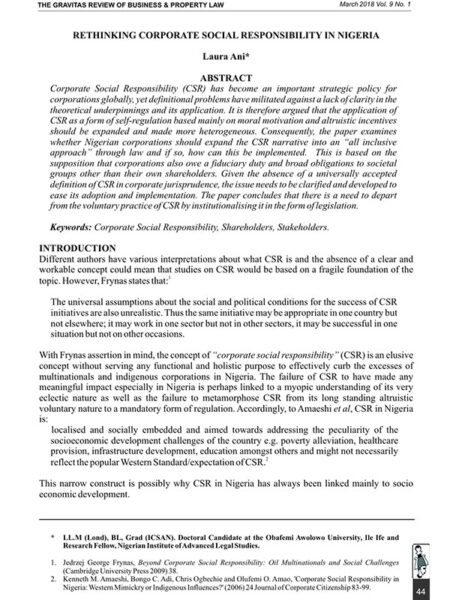
Reviews
There are no reviews yet.